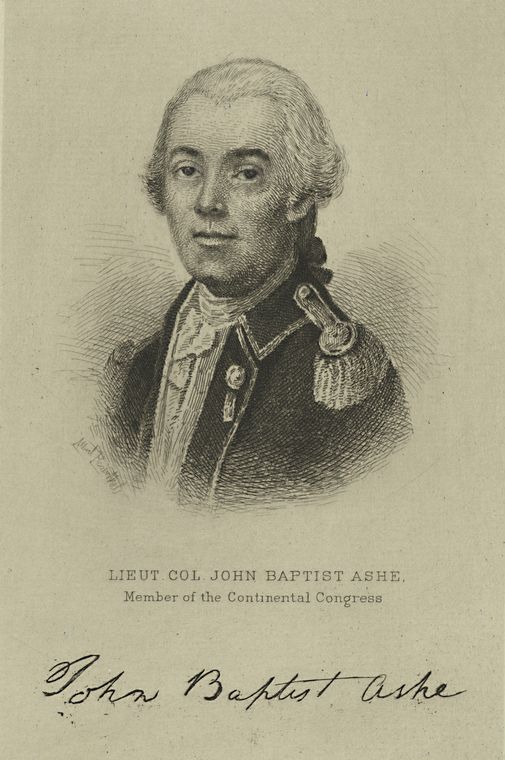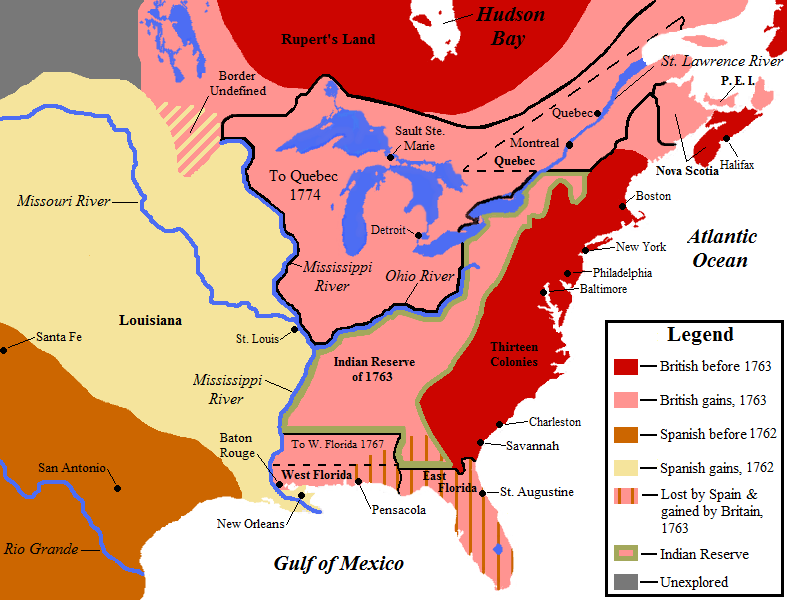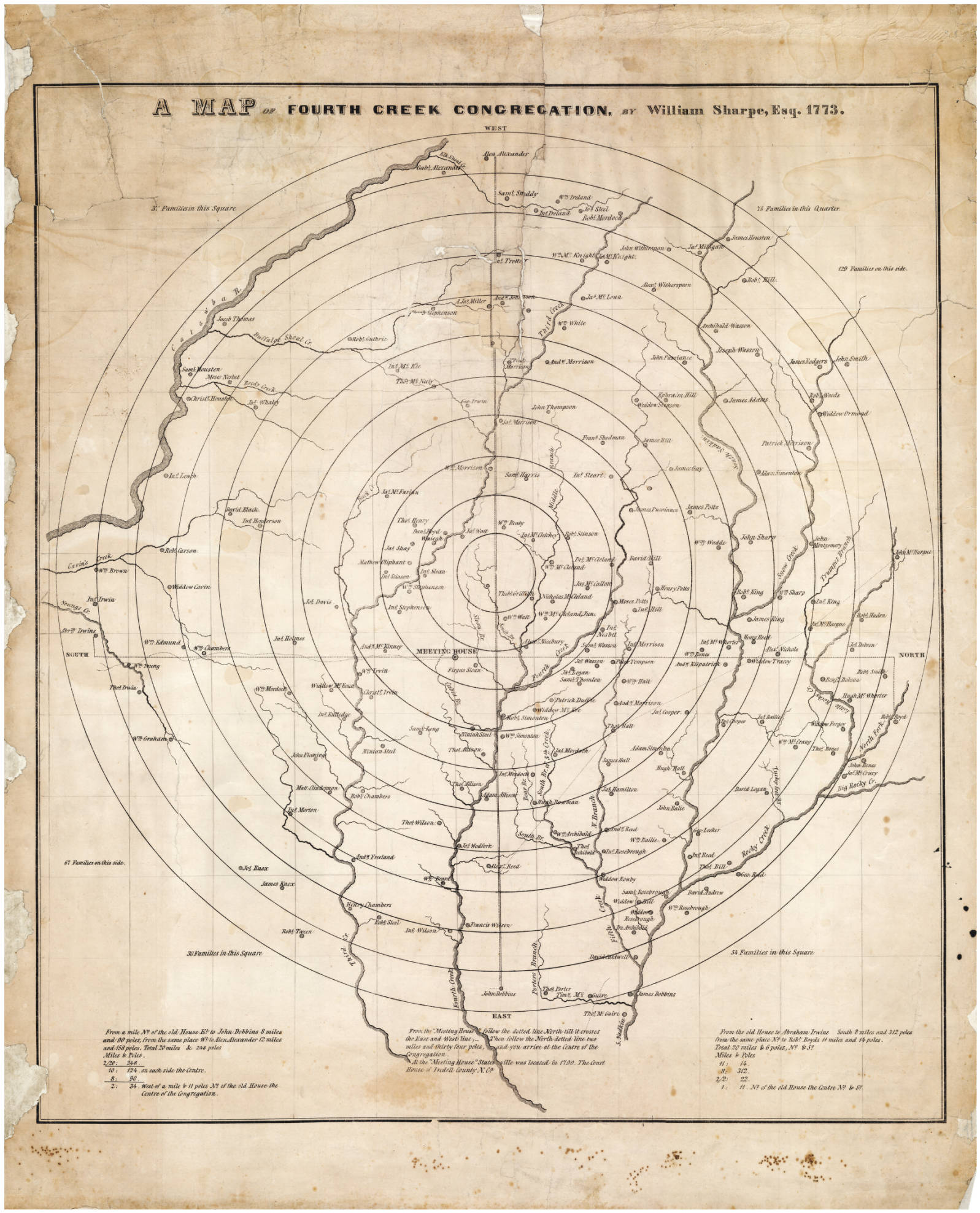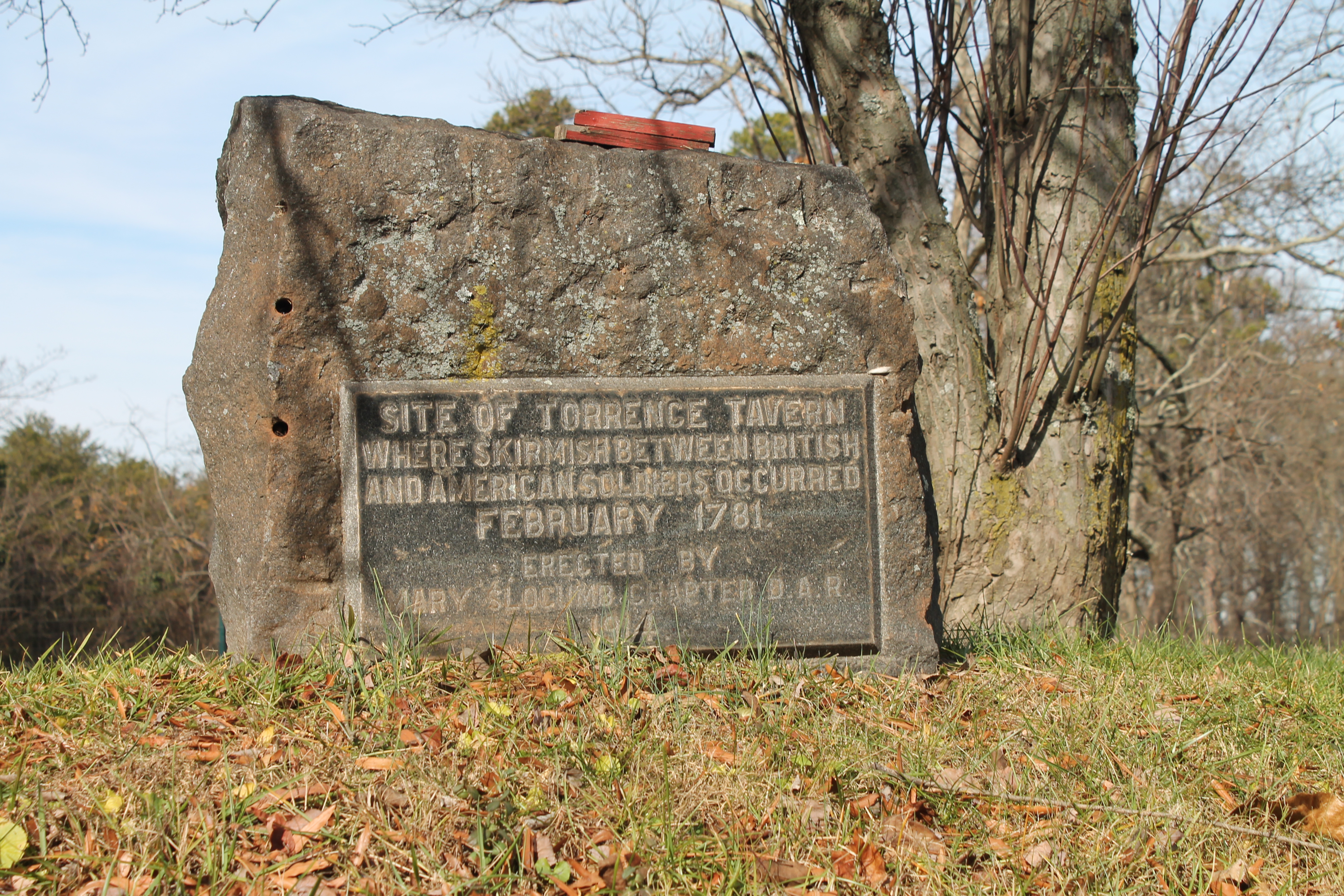|
Rowan County Committee Of Safety
The Rowan County Committee of Safety was one of the 18 Committees of Safety in North Carolina authorized by the Continental Congress and endorsed by the Second North Carolina Provincial Congress. It was established in Rowan County, North Carolina in 1774. Meeting minutes from 1774 to 1776 have survived and are available through a digital collection. The Rowan County Committee of Safety was instrumental in banning trade with Britain and preparing for the American Revolution. One of its major achievements was the Rowan Resolves., original publications from 1775 to 1776, The University Library of the University of North Carolina at Chapel Hill sponsors Documenting the American South, and the texts and materials come primarily from its southern holdings. The UNC University Library is committed to the long-term availability of these collections and their online records. An editorial board guides development of this digital library. Formation of Committees of Safety The demand for ind ... [...More Info...] [...Related Items...] OR: [Wikipedia] [Google] [Baidu] |
Committee Of Safety (American Revolution)
In the American Revolution, committees of correspondence, committees of inspection (also known as committees of observation), and committees of safety were different local committees of Patriots that became a shadow government; they took control of the Thirteen Colonies away from royal officials, who became increasingly helpless.T. H. Breen, ''American Insurgents, American Patriots: The Revolution of the People'' (Macmillan, 2010), pp. 162, 186–89. In Massachusetts, as affairs drew toward a crisis, it became usual for towns to appoint three committees: of correspondence, of inspection, and of safety. The first was to keep the community informed of dangers either legislative or executive, and concert measures of public good; the second to watch for violations of , or attempts of loyalists to evade them; the third to act as general executive while the legal authority was in abeyance. In February 1776 these were regularly legalized by the Massachusetts General Court but consolidate ... [...More Info...] [...Related Items...] OR: [Wikipedia] [Google] [Baidu] |
Continental Congress
The Continental Congress was a series of legislative bodies, with some executive function, for thirteen of Britain's colonies in North America, and the newly declared United States just before, during, and after the American Revolutionary War. The term "Continental Congress" most specifically refers to the First and Second Congresses of 1774–1781 and, at the time, was also used to refer to the Congress of the Confederation of 1781–1789, which operated as the first national government of the United States until being replaced under the Constitution of the United States. Thus, the term covers the three congressional bodies of the Thirteen Colonies and the new United States that met between 1774 and 1789. The First Continental Congress was called in 1774 in response to growing tensions between the colonies culminating in the passage of the Intolerable Acts by the British Parliament. It met for about six weeks and sought to repair the fraying relationship between Britain and t ... [...More Info...] [...Related Items...] OR: [Wikipedia] [Google] [Baidu] |
Second North Carolina Provincial Congress
The Second North Carolina Provincial Congress was the second extra-legal unicameral body of the North Carolina Provincial Congress that met beginning in 1774. They were modeled after the colonial lower house (House of Commons). These congresses created a government structure, issued bills of credit to pay for the movement, and organized an army for defense, in preparation for the state of North Carolina. These congresses paved the way for the first meeting of the North Carolina General Assembly on April 7, 1777 in New Bern, North Carolina. The second Congress met in New Bern from April 3 to April 7, 1775. Legislation The second congress met at New Bern, from April 3 to 7, 1775. John Harvey served as moderator. The congress met at the same place and almost the same time as the Province of North Carolina General Assembly of 1775 and had almost exactly the same membership (61 of the 107 delegates attended both). This infuriated the royal governor Josiah Martin, who dissolved the ... [...More Info...] [...Related Items...] OR: [Wikipedia] [Google] [Baidu] |
Rowan County, North Carolina
Rowan County is a County (United States), county in the U.S. state of North Carolina that was formed in 1753, as part of the British Province of North Carolina. It was originally a vast territory with unlimited western boundaries, but its size was reduced to 524 sq mi after several counties were formed from Rowan County in the 18th and 19th centuries. As of the 2020 United States census, 2020 census, its population was 146,875. Its county seat, Salisbury, North Carolina, Salisbury, is the oldest continuously populated European-American town in the western half of North Carolina. Rowan County is located northeast of Charlotte, North Carolina, Charlotte, and is considered part of the Charlotte metropolitan area. History Early history The first Europeans to enter what is now Rowan County were members of the Spanish expedition of Juan Pardo (explorer), Juan Pardo in 1567. They established a fort and a mission in the native village of Guatari, believed to be located near the Yadkin Ri ... [...More Info...] [...Related Items...] OR: [Wikipedia] [Google] [Baidu] |
American Revolution
The American Revolution was an ideological and political revolution that occurred in British America between 1765 and 1791. The Americans in the Thirteen Colonies formed independent states that defeated the British in the American Revolutionary War (1775–1783), gaining independence from the British Crown and establishing the United States of America as the first nation-state founded on Enlightenment principles of liberal democracy. American colonists objected to being taxed by the Parliament of Great Britain, a body in which they had no direct representation. Before the 1760s, Britain's American colonies had enjoyed a high level of autonomy in their internal affairs, which were locally governed by colonial legislatures. During the 1760s, however, the British Parliament passed a number of acts that were intended to bring the American colonies under more direct rule from the British metropole and increasingly intertwine the economies of the colonies with those of Brit ... [...More Info...] [...Related Items...] OR: [Wikipedia] [Google] [Baidu] |
Rowan Resolves
Rowan Resolves is the short name for a colonial era document called ''Resolutions by inhabitants of Rowan County concerning resistance to Parliamentary taxation and the Provincial Congress of North Carolina.'' It was signed in Salisbury, Rowan County, in the royal Province of North Carolina on August 8, 1774 in response to a series of punitive laws passed by the British Parliament in 1774, the Intolerable Acts, after the political protest against Tea Act in Boston, the Colony of Massachusetts Bay, commonly known as Boston Tea Party. Rowan County was the first county in North Carolina to adopt such resolutions in the early stages of American Revolution. Discovery The document was discovered in Iredell County in 1851 among the papers of the Sharpe family which were direct descendants of William Sharpe, the last Secretary of the Rowan County Committee of Safety. The document was first published to the general public by Colonel Wheeler. Authenticity of the document was asserted by a ... [...More Info...] [...Related Items...] OR: [Wikipedia] [Google] [Baidu] |
Matthew Locke (U (1824–1911), American politician in Texas
{{hndis, Locke, Matthew ...
Matthew Locke may refer to: * Matthew Locke (administrator) (fl. 1660–1683), English Secretary at War from 1666 to 1683 * Matthew Locke (composer) (c. 1621–1677), English Baroque composer and music theorist * Matthew Locke (soldier) (1974–2007), Australian soldier killed in Afghanistan * Matthew Locke (U.S. Congress) (1730–1801), Representative from North Carolina between 1793 and 1799 * Matthew Fielding Locke Matthew Francis Locke (1824–1911) was an American politician in Texas. He was elected to the Texas House of Representatives and the Texas Senate. Locke served as Speaker of the Texas House of Representatives in the Seventh Texas Legislature. H ... [...More Info...] [...Related Items...] OR: [Wikipedia] [Google] [Baidu] |
William Lee Davidson
William Lee Davidson (1746–1781) was an officer in the North Carolina militia and Continental Army during the American Revolutionary War. He was born in Pennsylvania and moved with his family to Rowan County, North Carolina in 1750. He was killed at the Battle of Cowan's Ford. Origins and education William Lee Davidson was born on August 9, 1746 in Lancaster County, Pennsylvania. His father George Davidson moved with his family to Rowan County, North Carolina, in 1750. William, the youngest son, was educated at Queen's Museum (later Liberty Hall) in Charlotte. Military service Service record: *Adjutant/Captain in the 1st Rowan County regiment of militia (1775-1776) *Major in the 1st Rowan County Regiment of militia (1776) *Major in the 4th North Carolina Regiment (North Carolina Continental Line) (1776-1777) *Lt. Colonel in the 5th North Carolina Regiment (North Carolina Continental Line) (1777) *Lt. Colonel in the 7th North Carolina Regiment (North Carolina Continental Li ... [...More Info...] [...Related Items...] OR: [Wikipedia] [Google] [Baidu] |
William Sharpe (North Carolina Politician)
William Sharpe (December 13, 1742 – July 1, 1818) was a lawyer, politician, American Revolution patriot, and a delegate to the Continental Congress from Rowan County, North Carolina, which became Iredell County in 1788. Early life Sharpe was born in Rock Church, Cecil County, Maryland, in 1742. He was the son of Thomas Sharp, Jr, and his wife, Elizabeth, of Maryland. He pursued classical studies and law. He was admitted to the bar and commenced practice in Mecklenburg County, North Carolina in 1763. He married Catherine Reese in Mecklenburg County, North Carolina on May 31, 1768. He moved to Rowan County, North Carolina in late 1768 or 1769. He lived in the area of Rowan County that became Iredell County in 1788.A biographical congressional directory, 1774 to 1903 : The Continental Congress: September 5, 1774, to October 21, 1788, inclusive. The United States Congress: the First Congress to the Fifty-seventh Congress, March 4, 1903, inclusive. Compiled under authority of Co ... [...More Info...] [...Related Items...] OR: [Wikipedia] [Google] [Baidu] |
Hugh Montgomery (North Carolina)
Hugh Montgomery (1720 – December 23, 1779) was a member of Rowan County Committee of Safety in 1775, and, in spite of his age, briefly commanded of the Rowan County Regiment during the American Revolutionary War. Origin and career Hugh Montgomery was born in 1720 in Ireland to James Montgomery, Sr and Ann (nee Thompson) Montgomery. Montgomery secretly carried on a love affair with Catherine Mary Moore, (due to her being a woman of noble birth and he lesser so). There is some evidence that they eloped and were married on board a ship bound for the American colonies in 1749.''Lot 90: 1780 North Carolina Rev. War Oath Signed By Matthew Troy + Christopher Beekman'' auction notes webpage; "Item Overview"; Inv ... [...More Info...] [...Related Items...] OR: [Wikipedia] [Google] [Baidu] |
Griffith Rutherford
Griffith Rutherford (c. 1721 – August 10, 1805) was an American military officer in the Revolutionary War, a political leader in North Carolina, and an important figure in the early history of the Southwest Territory and the state of Tennessee. Originally from Ireland, Rutherford immigrated with his parents to Philadelphia, Pennsylvania Colony, at the age of 18. In 1753, he moved to Rowan County, in the Province of North Carolina, where he married Elizabeth Graham. During the French and Indian War, Rutherford became a captain in the North Carolina Militia. He continued serving in the militia until the start of the American Revolution in 1775, when he enlisted in the North Carolina militia as a colonel. He was appointed to the post of brigadier general of the "Salisbury District Brigade" in May 1776, and he participated in the initial phases of the wars against the Cherokee Indians along the frontier. In June 1780, Rutherford was partly responsible for the Loyalist defe ... [...More Info...] [...Related Items...] OR: [Wikipedia] [Google] [Baidu] |
Rowan County Regiment
The Rowan County Regiment was originally established in about August 1, 1775 as a local militia in Rowan County in the Province of North-Carolina. When the North Carolina Provincial Congress authorized thirty-five existing county militias to be organized on September 9, 1775, the Rowan County Regiment was included and all officers were appointed with commissions from the Provincial Congress. The members of the Rowan County Regiment were mostly from what was Rowan County at the time. Prior to establishment of the Rowan County Regiment, many of its officers were active in the Rowan County Committee of Safety. The regiment included 160 known companies and one or more of these companies were engaged in 36 known battles or skirmishes during the American Revolution. After the establishment of the Rowan County Regiment, several other counties were created from Rowan County, including Burke County in 1777, Iredell County in 1788, Davidson County in 1822 and Davie County in 1836. ... [...More Info...] [...Related Items...] OR: [Wikipedia] [Google] [Baidu] |




